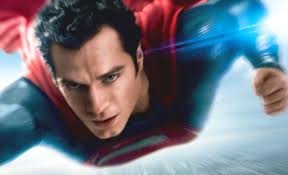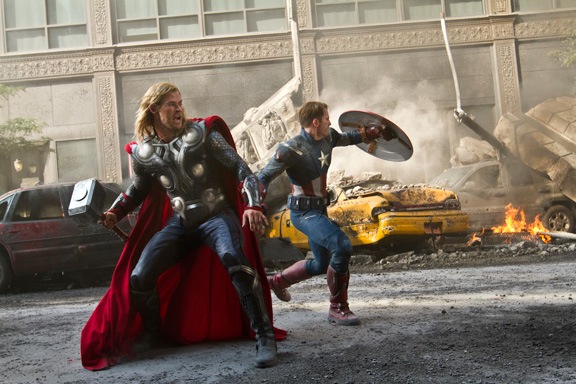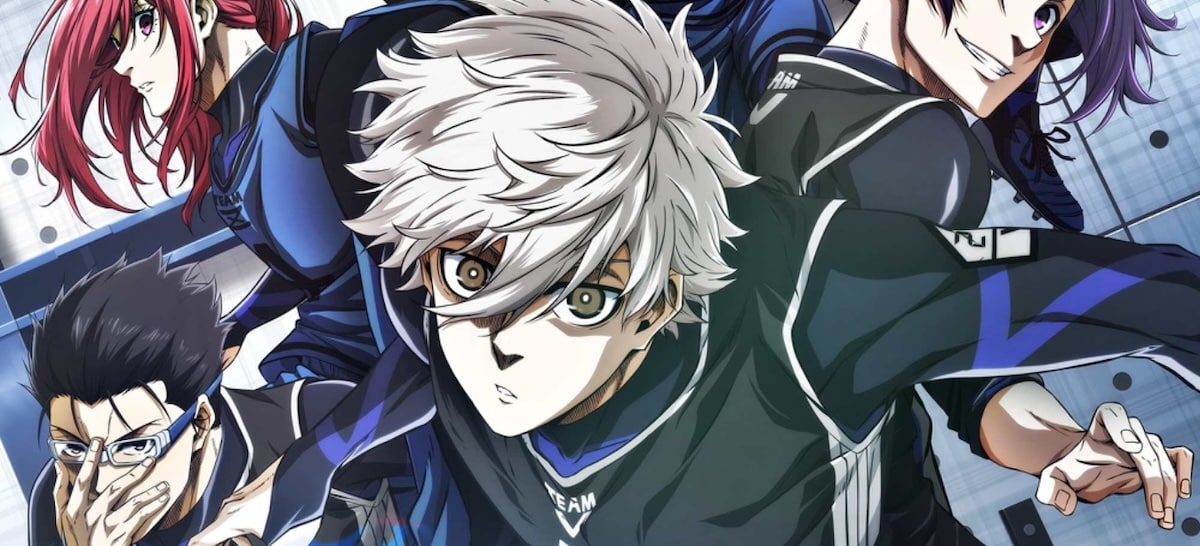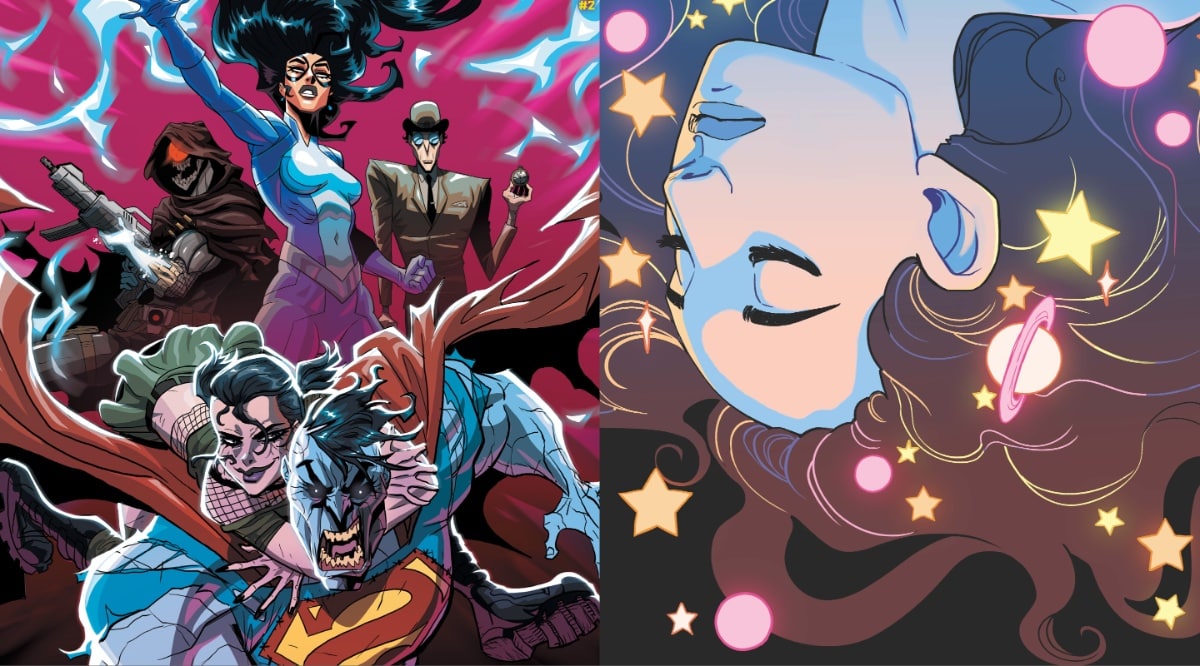By Mark E. Johnson
In the post-Clooney world of 2005 we were all more than happy to accept a grimmer, more ‘realistic’ Batman. It was already five years since the first X-Men film brought on-screen superheroes closer to Earth. And… you know, Batman’s Batman. The dark(ish) tone of Man of Steel, however, has proved to be more of a sticking point. A lot of people are unhappy with the fit.
In a thoughtful and well constructed piece over on CBR, Jim McLauchlin argues that the superhero films of DC/Warner Bros have a much more pessimistic outlook than those of Marvel. Further, he argues, they fail to reflect the worldview of that all-important 18-34 demographic that they’re kinda-sorta catering for. While I’ve greatly enjoyed output from both camps, I’m here to disagree.
The DC films are, of course, darker in tone than their Marvel counterparts (Green Lantern seems to be getting locked in a yellow wooden box and buried for the purposes of this discourse, which suits me just fine). You could be forgiven, after a viewing the final battle of Man of Steel, for crawling into a Pikachu onesie and refusing to come out until Adventure Time came on the telly. Personally, I would certainly have appreciated a lighter touch in the film—a gentle smattering of a few additional humorous moments would easily have done it. The Marvel films, by comparison, make you feel like you’re already wearing your bright yellow onesie and it’s OK because Ryan Gosling has one too.
It’s a mistake, however, to mistake darkness for pessimism.
McLauchlin discusses optimism among today’s 18-34s in terms of their belief in their ability to mold the future, in a sense of agency. He makes an example of the recent strides towards equal marriage rights in the US. I’d be tempted to argue that we actually feel that we have some agency in civil rights-related issues, but feel largely powerless on issues which involve the cold hard realities of cash, such as global warming and income disparity. However, McLaughlin and I are writing from different sides of the Atlantic (I’m in the UK) and I’m sure that we could trade contradictory anecdotal evidence all day. So, accepting the notion that we’re basically an optimistic bunch with a sense of agency, how does that bear up in the films?
I’d have to say: better in the recent examples of DC films than of those from Marvel. So… SPOILER WARNING.
In The Avengers, New York City is attacked by a raging alien horde and the average-Joe-policemen look on, helpless, until a man in a superhero costume rocks up and suggests in a steely voice that they might get some civilians to safety. In Man of Steel, it’s actually an average-Joe-soldier who deals the decisive blow against the raging alien horde, saving the world. Similarly Lois, while she still needs rescuing a couple of times, manages to be a lot more useful than any of the un-super-folk we see in Marvel’s films.
In The Dark Knight Rises, Bats wouldn’t have got very far without the ordinary, heroic men and women of the GCPD stepping up for that final battle.
‘But,’ you might argue, ‘up until that point the GCPD are a bit rubbish. And Superman trashes the military’s drone because he doesn’t really trust them.’ Yes. There’s definitely an air of distrust whirling round the DC movieverse when it comes to powerful institutions. There wouldn’t even be a Batman if he trusted the police to do their job.
Individually, though, ordinary folk are frequently stepping up. Jim Gordon is an obvious example. Perry White refuses to abandon Jenny (whoever the hell she is – ‘Jenny Olsen’?). The chaps on the boat in Dark Knight decide not to blow up the other chaps. While the machinery of the GCPD fails Gotham, the men and women of the force come forward to fight Talia and Bane. According to David Goyer, there are numerous people in Smallville presumably keeping Clark’s secret, even as the military tries to spy on him. (And by the way, doesn’t smashing up that spy drone look like a good idea right now?)
Over in the Marvel movieverse our heroes have a vaguely more positive relationship with public institutions. SHIELD seems to exist as part networking tool, part superhero cover-up operation, part shady weapons manufacturer to be disregarded once it becomes apparent they’re shady. Oh, and they wanted to nuke NY. On balance, I suppose you’re getting a watered-down version of the negativity towards state authority without the faith in the man on the ground. The man on the ground, for the most part, is there to bungle things so the superheroes look more impressive when they show up to see off the aliens/save the president/punch Loki.
You could actually frame the entirety of Man of Steel as a tug of war between pessimism and optimism. Clark, fuelled by the fear that mankind will reject him and/or do something stupid to itself should it discover his true nature, has to decide whether he can trust humanity to accept him and step forward with him into the future. And, frankly, they do. Arguably, it’s the graver threats that throw the heroism of all those average-Joes into greater relief.
Over in the Mighty (film) World of Marvel, however, the question is ‘can some super-people swoop down and save us, absolving us of responsibility for dealing with this mess ourselves?’ The answer, of course, is yes.
Sure, the movie world of Marvel is a brighter-looking place than the DC equivalent. I’m sure many of us would agree we’d rather go for shawarma with the Avengers than nomadically wander the Earth with Bruce or Clark. But surely, when you get down to it, the more optimistic outlook is the one in which ordinary folk stand up and take some responsibility for saving themselves, rather than just waiting for a caped messiah to turn up and do it for them?
[Mark E. Johnson is a writer and professional nerd. He tweets from @Spinface. Copyright © 2013 Mark E. Johnson. All Rights Reserved.]










Agree here. Points well taken. Good piece.
“Similarly Lois, while she still needs rescuing a couple of times, manages to be a lot more useful than any of the un-super-folk we see in Marvel’s films.”
You’re overstating that quite a bit. Eric Selvig acquitted himself rather well in the Avengers. While under Loki’s control, he still managed to place a safety in the portal device that allowed it to be shut down using Loki’s staff. In Captain America, Peggy Carter winged the escaping Nazi agent and took out his driver with her sidearm. In Iron Man, Pepper is the one who blows the roof with the ARC reactor and kills Stane. In Iron Man 2, Happy Hogan drives the limo onto the Gran Prix track and pins Vanko against a fence, buying Tony Stark enough time to get the armor on that Pepper gets to him. Happy also takes out a guard while Black Widow takes out the rest to get to the computer system that Vanko is using to control Rhodey and the drones.
I enjoyed Man of Steel, which I know isn’t popular to say since it had so many holes and didn’t really feel like a Superman story. But my friends and I were entertained for two hours in a theater. No harm in that. The character has survived far worse, like Quest For Peace or Lois & Clark. For the record, Russell Crowe was a better Jor El than Brando.
Yup. I was tempted to roleplay the disgusted local survivor when Marvel was selling “I Survived the Battle of New York” t-shirts at NYCC. Nobody (except for the Hollywood Reporter) wanted to contemplate the damage to Midtown, the numerous deaths, the giant spaceship in Grand Central Terminal (and the subway beneath). I’m a bit surprised no one tried to sue Tony Stark for building that skyscraper, or at least held him responsible for the damage to Midtown.
Superman’s SOP is to let humanity stumble towards perfection, only stepping in to help when big trouble demands. (See: Justice)
The Marvel heroes, which are based on Mad Science, tend to be the ones causing the trouble, trying to drag humanity kicking and screaming towards the future. (See: Civil War/Siege/Dark Reign) It’s a bit ironic…the Marvel Age of comics happened because the characters were more realistic…dealing with real world problems while fighting unreal threats.
But now that’s flipped. DC has more realistic movies, dealing with big themes, and garnering kudos.
That’s not to say that popcorn blockbusters aren’t fun… I enjoyed Iron Man 3. But those movies are escapist; you don’t want to think about the reality involved. But if you’re telling a great story, then you’ve got to embrace the reality, reflect the Zeitgeist, and comment on the real world outside the movie theater.
As for pessimism/optimism, it’s the same coin. Look at The Empire Strikes Back. Look at The Hunger Games. Look at freakin’ Harry Potter. Dystopic fiction is popular right now in young adult literature (because of Hunger Games). Of course, those YA novels usually have a happy ending, as do most stories.
See I actually think that MOS is a fairly dark film for reasons that are nothing to do with how it relates to comics or how ordinary people are used. The film hits us over the head with the idea of Superman as Space Jesus but then in the second half because it is a hollywood blockbuster we have lots of smashing things up and death – it’s not a good or positive juxtaposition (and I say that as an atheist).
One way in which the DC and Marvel heroes differ might be their identities. Clark Kent is a disguise for Kal-El; Bruce Wayne is a disguise for Batman; Diana Prince is a disguise for Wonder Woman. Conversely, Spider-Man is Peter Parker’s costumed identity, while Captain America is Steve Rogers’, and Iron Man is Tony Stark’s. Even if the Marvel heroes’ civilian lives aren’t developed in great detail, the potential for development is always there. One can envision a novel about Peter Parker in which Spider-Man is in the background, with the bulk of it devoted to Parker. That’s not the case with Superman or Batman. Kent and Wayne are just disguises to be ripped off when the heroes are needed. As for romance, Parker, Rogers, or Stark could fall in love with _____; Superman loving anyone other than Lois Lane or Batman loving anyone more than fighting crime is practically unthinkable.
The greater rigidity of the DC heroes–they were created to be cast in “Good vs. Evil” morality plays–probably affects how screenwriters view them and how to use them in movies designed for general audiences. An attempt to deviate from a morality play, as in MAN OF STEEL, seems awkward, simply because acting immorally or unethically isn’t in Superman’s nature.
One can envision a married Peter Parker, with kids, deciding to retire his Spider-Man identity, because he realizes the world will continue to exist without Spider-Man. Superman couldn’t do that; as long as he exists, menaces will continue to arise that require his presence, because that’s how his universe was designed and he can’t escape it.
SRS
That you might be able to find instances between Marvel and DC films where one is more optimistic than the other, but I think that’s getting away from the main point.
While Nolan Batman movies were quite dark and realistic, no one really had a problem with that. As it fits the tone of the character, with some of the best Batman comics taking that direction. Batman Begins took a lot from Batman: Year One, one of the best Batman comics out there and built off of that.
For Superman that kind of tone doesn’t fit well with the character, which is why I think so many people have had a bad reaction to Man of Steel. That when you look at the best Superman comics, you don’t think gritty and realistic, but something really fun like All-Star Superman.
The classic Batman pose would be Batman at night, in some sort of gothic setting, perhaps raining but something very dark. Superman while you might have him fighting a villain, but just by himself it’s him flying among the clouds (or the now classic Frank Quitely cover of him sitting among the clouds) with people looking up in awe. You don’t typically see Superman falling into a mountain of skulls like we saw in Man of Steel.
“That when you look at the best Superman comics, you don’t think gritty and realistic, but something really fun like All-Star Superman.”
Oh – you the mean the title where he’s dying? :)
Superman is the most tragic hero out there. They don’t call him the Last Son of Krypton for nothing. People seem to forget that.
@Cliff
Don’t feel bad for liking a movie even though it’s getting some bad press. (And really, MoS is getting some really positive reviews to go along with the bad.) My favorite “superhero” movie is The Crow and I don’t care that it’s the prototype for Twilight. I also have a lot of fondness for the Fantastic Four movie Roger Corman produced. So, you’re leagues ahead of me! ^_^
DC’s darkness and realism is a crutch for presenting children’s characters as somehow meaningful. Marvel can be honest with itself and have stupid superhero fights for the sake of nothing. DC becomes tiringly bleak and violent in a transparent attempt to make a character calling himself “Superman” appear not to be idiotic. Oh sorry he is exactly like Jesus. DC can’t come to terms with who they are, except in animated movies which are exceptional.
People like to go on like the Marvel Movies are all air and light, like an old Captain Marvel comic or something…but they really aren’t. There’s certainly more humour involved in them, but to put the Marvel and DC films on opposite ends of the spectrum is a bit disingenuous.
Throw a couple more jokes in and MOS would have been pretty similar to the Avengers, I think.
Captain Marvel’s a good symbolic metaphor. Back in the day, DC’s was light and airy feel good…
Marvel’s died of cancer.
Flash forward a couple decade’s I’m still scratching my head over DC’s S&M Mary Marvel. Which light or dark, still just remains “wtf” for me.
Silly but True
Interesting arguments, but I’d disagree with both of you.
The Batman and Superman films show characters whose presence is equally destructive to everyone around them. Nolan flat out stated in an interview that he wanted to show how being Batman is a mistake (I think it was with Elvis Mitchell, after DKR). Superman’s appearance attracts Zod, who wrecks EVERYTHING. The first thing Superman does upon seeing a Kryptonian at his family home? Drags the guy straight into a populated town and blows up a gas station. He spends the final fight literally using Zod’s head to knock down buildings full of people. Batman spies on everyone’s phone calls (I seem to recall people think this is a bad thing?) He backs Harvey Dent because he believes that using the system is better than working outside of it. His success comes in giving up the costume. These films are about, in part, the negative aspects of power.
The Marvel films are about people with power learning to put aside selfishness and vanity in service to others. I disagree that the military are depicted well in Man of Steel but not the Avengers when the Avengers are actually a part of the military– they weren’t vigilantes. Man of Steel’s positive view of the military is at least in part due to the Army’s close involvement with the film and use of it as a recruitment tool– how’s that for cynicism?
The DC movies are optimistic about the human capacity for selflessness in the face of adversity– Batman is the personification of its opposite, Superman is its catalyst. The Marvel movies are optimistic about the human capacity to overcome selfishness and use power wisely. Semantics. They’re riffs on the same idea. I think the real split between the two (philosophically) is that the DC movies mistrust wealth (in the most ham-fisted way possible), while the Marvel movies seem to be pretty ok with it (up until Shane Black’s Not Really Iron Man). What people are responding to are the aesthetics, which are not entirely divorced from these themes, but aren’t quite the same thing.
Just because we all grew up with the Marvel v DC dichotomy doesn’t mean we have to continue to view all this stuff in simple black and white.
Christ. Sorry about the dissertation, folks.
Does it really matter? I mean, basically both Marvel and DC films still deal with 9/11 trauma: “oh, we americans are not alone”, “somebody else exists out there and may hate us so we must be prepared”, and bla, bla. To their merit, at least both Tony Stark and Bruce Wayne tried to left the arms business thou there´s always some xenophobic reason to pull them back in. I think the Nolan bats trilogy dealt with it extensively and this films could find another leit motiv.
On the other hand I find the bashing of World War Z interesting since it deals with other kind of stuff, much like the films of Charlton Heston from the seventies: overpopulation, limited resourses, global catastrophe and the idiosincratic reactions to it, etc. Not a masterpiece, but at least it expreses concern for, yeah, world wide problems and the recognition that “the others” (not americans) have to deal with those too.
That ending of Man Of Steel felt like the cheap pretty pessimistic 9/11 porn you see in Bay’s Transformers or a Rolland Emmerich film. I was utterly disgusted that Snyder and company thought that carnage worked for a Superman film.
I was talking with a friend of mine and half joked maybe it fit a DragonBall Z movie, yet we concluded that this crap would have been too dark even for that.
Superman Returns missed a lot of action, and surely messed up Lois and Lex, as well as tons of other problems. Yet it at least had scenes Superman in Metroplois saving people in a crisis not running around. Maybe somewhere between those two film disasters is a decent Superman film.
And not only are they immaturely mature and darker in tone like some bad 90s comic, they also don’t get DC versus Marvel. DC was usually more mythological in their heroes and Marvel did the ‘Dark Knight’-ing of the more real world super heroes. Warners is plum stupid to try to change their brand to more Marvel brand heroes. It’d be like KFC stopping chicken and changing only to burgers in order to compete with McDonalds.
Heck, Snyder should have stuck to Frank Miller and adapting Dark Knight Returns. That would have been better than Watchmen, Dark Knight Rises, and Man of Steel combined. I see all three as wastes of film. Though I guess Rises works as an end cap for Nolan’s own little twist on the Batman myth.
Does it really matter? I mean, basically both Marvel and DC films still deal with 9/11 trauma: “oh, we americans are not alone”, “somebody else exists out there and may hate us so we must be prepared”, and bla, bla.
You’re projecting.
I don’t care. All I know is that I was entertained for over 2 hours. This wasn’t Christopher Reeves, this is 2013. I can enjoy them both and I was also at the opening of both films (I was 20 years old then, and I sat thru it twice that day, and is still one of my favourite films to this day). Didn’t find it dark, I think people are over thinking the film. It’s entertainment and that is it. It’s Superman, and not Citizen Kane.
The thing with DC is their a two trick pony. All they have is Superman and Batman, as the rest of their characters do not translate well into live-action films like Marvel does. Marvel has way more interesting characters. DC did a great job rebooting Superman and Batman for mainstream Hollywood audiences, but I doubt they will ever find that third character that will make a leap to films successfully.
respectfully
“the amazing stam”
The Dark Knight had a sense of humour, fully developed characters and an uncynical ending, it was in a lot of ways the anti-Man of Steel. The Joker even says something along the lines of, “You didn’t think this would all come down to a fistfight did you?”
This pretty much says it all about Hollywood’ s mania for destruction, as seen in Man of Steel, Iron Man 3, World War Z, etc. Could this be where movies are headed?
http://www.theonion.com/articles/new-michael-bay-romantic-comedy-to-focus-on-love-s,33010/
Watching Avengers, I felt like the story cared about the civilians. Much was made of them evacuating, getting to safety and we were given numerous shots of nameless thousands doing their best to survive done in such a way to imply this was important, that we should care. The Avengers certainly cared, particularly those on street level – the fight was as much about protecting as many of the people on the ground as possible as it was about killing aliens. The montage at the end of the movie was about how people got through (and did not get through) the invasion.
In Man of Steel, I really didn’t get that impression at all. Oh, Superman definitely wanted to save Earth as a whole and the people that he cared about in particular, and there was a focus on the few people from the Daily Planet, but it felt like the director was enjoying the destruction. Buildings were crashing down squishing fleeing crowds everywhere, but there was no real mention of, I don’t know, trying to rescue those fleeing crowds. Not even among military members who instead spent their time shooting at invulnerable Kryptonians. Heck, Superman didn’t even make a token attempt to lure Zod away from Metropolis, or even after the fight make a one sentence remark about attempting to rescue the survivors from the rubble.
For all the talk of the grittiness of the Christopher Nolan Batman movies, I always found them quite hopeful movies. Ultimately people in Gotham were proven to be fundamentally decent, despite incredible adversity.
There was a lot I liked about Man of Steel, but ultimately I didn’t love it and don’t feel a need to watch it again. The movie’s take on Lois Lane was excellent, and they resolved the whole Lois Lane/secret identity dilema pretty smartly. I also liked that the version of Jor El presented was the Silver Age badass rather than the more antiseptic version from the 80’s. However I don’t think that the movie had a good handle on the character of Superman himself. I can understand the character arc that they were trying to give him, but a) it is something that we have seen in dozens of films over the last couple of years (are there any heroes’ out there without daddy issues or traumatic pasts) and b) it ignores the essential personality of the character. He is fundamentally decent in a way that is a little unfashionable these days. The movie was a destruction packed thrill ride, but it wasn’t in any way inspirational.
I thought that this was a missed opportunity. If I recall, there was a Doctor Who episode during the Russel T Davies era (The Doctor’s Daughter), where the Doctor holds a man at gunpoint, and walks away. Why? Because these is a better way. Allowing Superman to be the hero who shows us the better way would have been a revolutionary act in these cynical times.
Comments are closed.